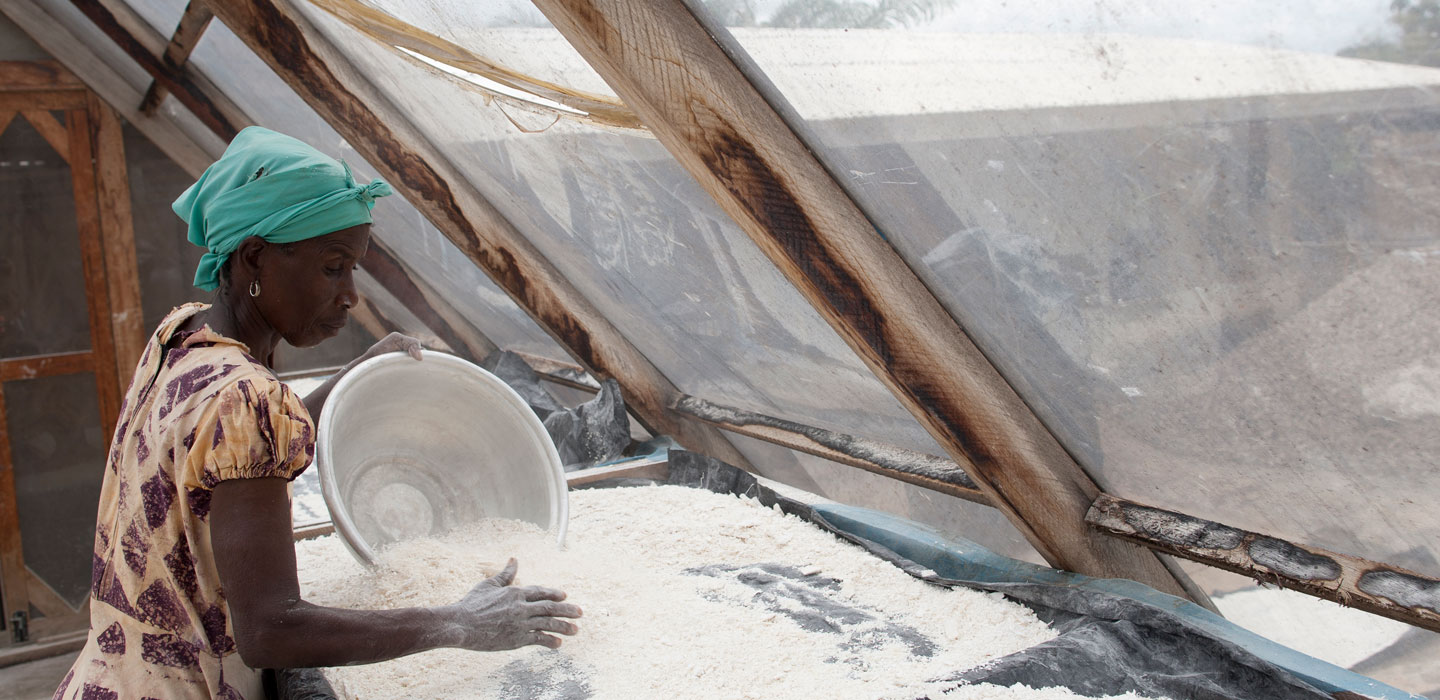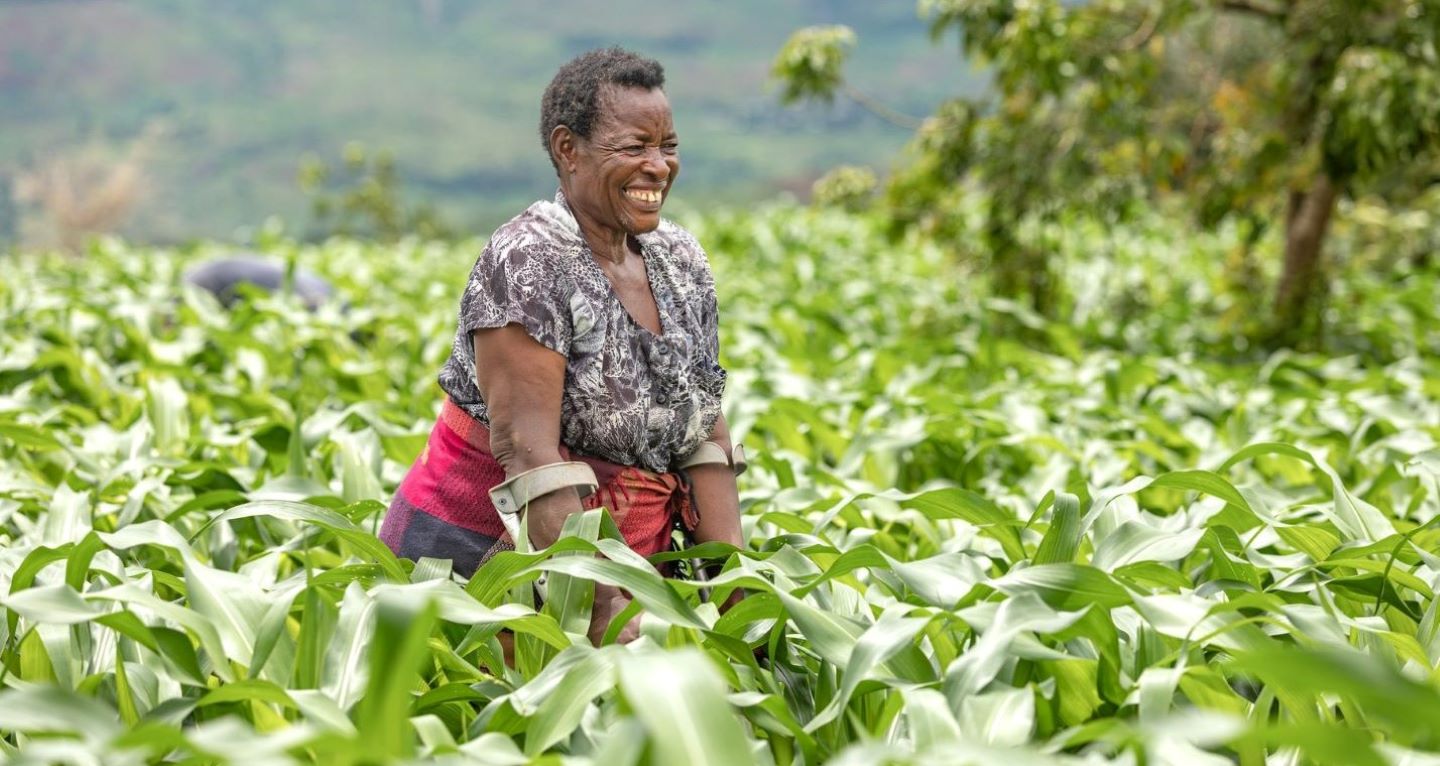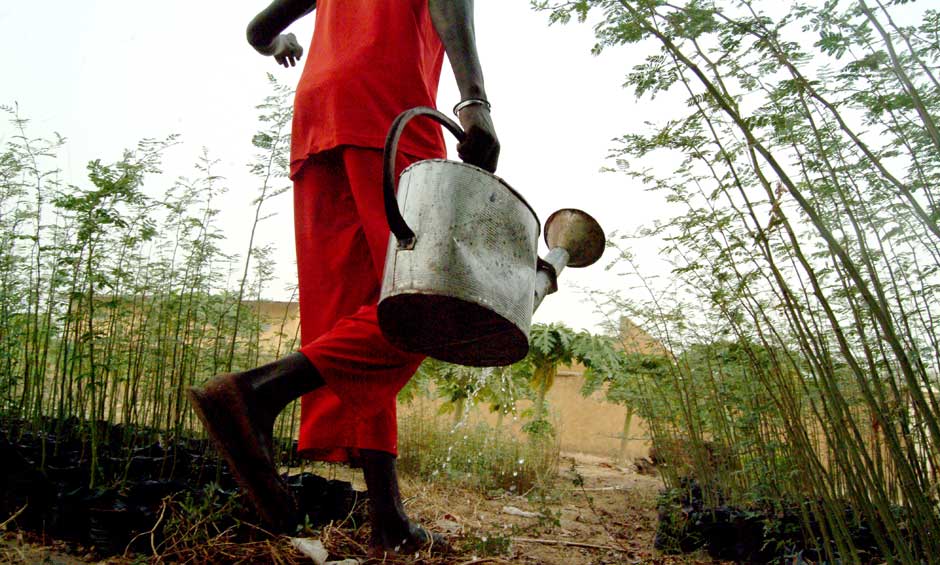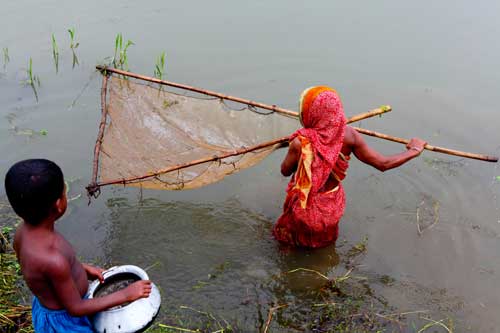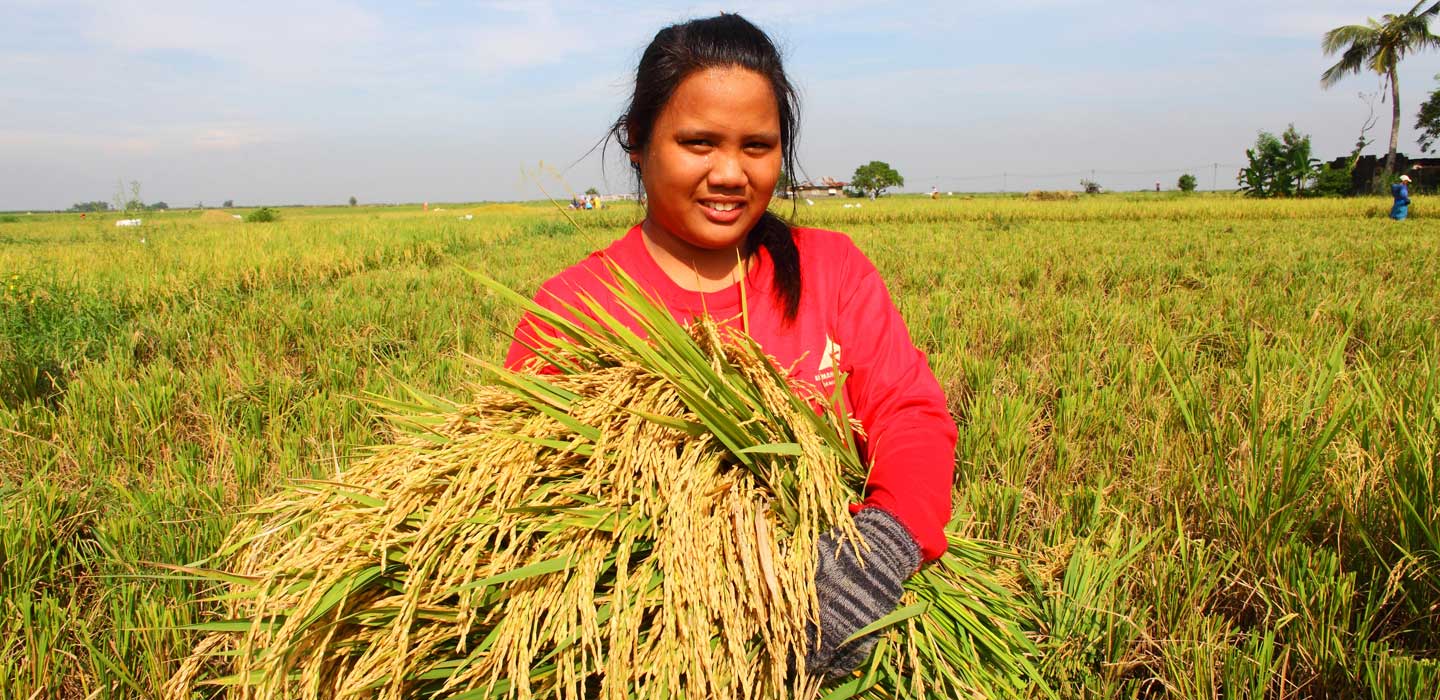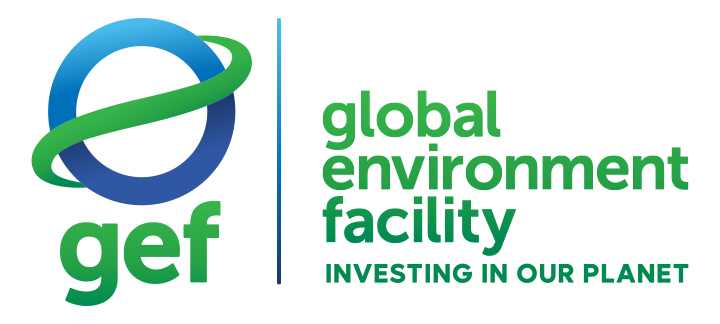Climate and environment
Climate - banner
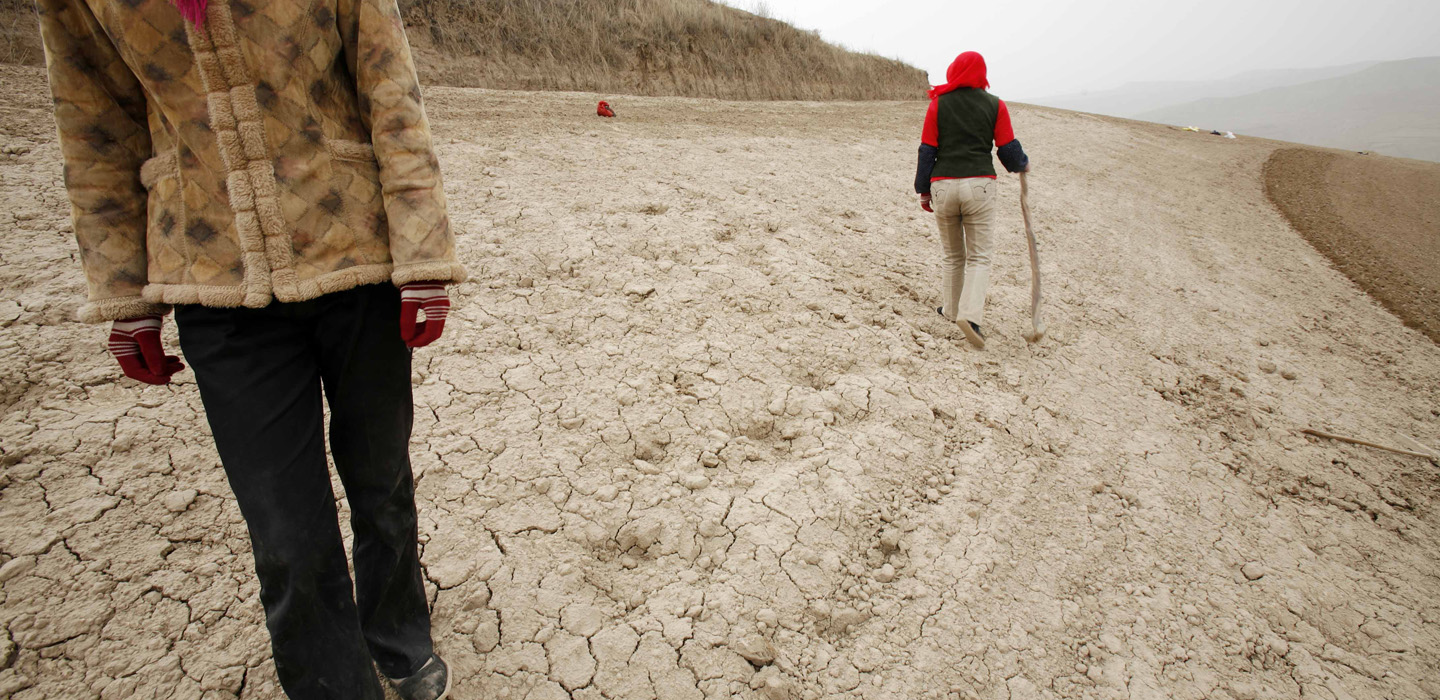
Climate and environment
Climate
Smallholder farmers and poor rural people bear the brunt of climate change and the degradation of natural resources. Extreme weather events, such as droughts, storms and floods, are putting pressure on the ecosystems that farmers depend on, as are gradual processes such as rising sea levels and melting glaciers.
Crop failures and livestock deaths are causing economic losses and undermining the food security of rural people with ever-greater frequency, especially in parts of sub-Saharan Africa.
At the same time, the rapidly growing global population demands higher levels of food production. To meet the world’s growing needs, agricultural production must double by 2050, food waste must be reduced and value chains have to become sustainable and efficient.
The ecosystems on which smallholder farmers rely are increasingly undermined. Access to suitable agricultural land is declining, and forest, soil and water resources are increasingly restricted and degraded.
Many farmers produce on marginal, rainfed land, where water is increasingly scarce. Pollution and overexploitation are causing a serious decline in fish populations, threatening essential sources of income and nutrition.
Improving farming practices and safeguarding the environment
Poor farmers and fishers are guardians of natural resources. With targeted assistance, agriculture, forestry and fishery sectors can play a key role in tackling environmental degradation and climate change.
Improving land management and adjusting farming practices can help alleviate pressure on the environment and lower greenhouse gas emissions.
Farming systems that embrace sustainable intensification practices can increase crop tolerance, diversify production and hinder environmental degradation.
Sustainable agricultural intensification
IFAD promotes agricultural growth that is environmentally sustainable and integrated into ecosystems. We help farmers and fishers become more resilient to the impact of climate change.
IFAD’s Adaptation for Smallholder Agriculture Programme is the largest global climate adaptation programme for smallholder farmers. We channel climate and environmental finance to smallholder farmers, helping them to reduce poverty, enhance biodiversity, increase yields and lower greenhouse gas emissions.
IFAD is also an executing agency of the Global Environment Facility (GEF) and of the Green Climate Fund (GCF). These are among the main financial mechanisms for addressing the intertwined issues of poverty alleviation, sustainable ecosystem management and climate change adaptation and mitigation.
Through these programmes, IFAD works with our partners to scale up successful approaches to sustainable agricultural production and green value chains. These approaches build climate resilience by managing competing land-use systems while reducing poverty, enhancing biodiversity, increasing yields and lowering greenhouse gas emissions.
In depth
In depth
Renewable energy
Spotlight
Spotlight
After Cyclone Freddy, investment brings hope to rural Malawi
Rural Malawians are still rebuilding and coming to terms with Freddy’s impacts. But thanks to much-needed investments in small-scale farming, hope is finally starting to appear on the horizon.
Initiatives and facilities
Experts
Publicador de Conteúdos e Mídias


Jahan-Zeb Chowdhury
Lead Technical Specialist - Environment & Climate Cluster Coordinator
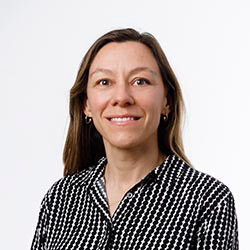
Nutrition View more link
Stories and news
Stories and news
After Cyclone Freddy, investment brings hope to rural Malawi
Rural Malawians are still rebuilding and coming to terms with Freddy’s impacts. But thanks to much-needed investments in small-scale farming, hope is finally starting to appear on the horizon.
Regenerative agriculture: from soil to sustainability – Episode 58
Hear from global leaders in regenerative agriculture – and learn how IFAD is leveraging their techniques to combat climate change in rural communities.
The three types of biodiversity: explained
Genetic, species, ecosystem: learn about the three main types of biodiversity and explore the role each plays in making agriculture productive, nutritious and resilient.
See how water and peace go hand in hand
Peace and water are inextricably intertwined. That’s why sustainable rural development can help reduce conflict in communities – and why water is often the crucial element that can make the difference.
Climate View more link
Related publications
Related publications
“Fruiting Africa” for health and wealth
A task list for multilateral agencies: the possibilities of Bridgetown
The policy brief focuses on the challenge of equitable and sustainable development for all and proposes a task list for multilateral development agencies and outlines potential for reform.
Adaptation for Smallholder Agriculture Programme (ASAP) brochure
The Adaptation for Smallholder Agriculture Programme (ASAP) was launched by the International Fund for Agricultural Development (IFAD) in 2012 to make climate and environmental finance work for smallholder farmers. A multi-year and multi-donor financing window, ASAP provides a new source of cofinancing to scale up and integrate climate change adaptation across IFAD’s approximately US$1billion per year of new investments. The programme is joined up with IFAD’s regular investment processes and benefits from rigorous quality control and supervision systems.
ASAP is driving a major scaling up of successful ‘multiple-benefit’ approaches to smallholder agriculture, which improve production while reducing and diversifying climate-related risks. In doing so, ASAP is blending tried-and tested approaches to rural development with relevant adaptation know-how and technologies. This will increase the capacity of at least 8 million smallholder farmers to expand their livelihood options in an uncertain and rapidly changing environment.
Related documents
Related documents
Publicador de Conteúdos e Mídias
Contact us
For questions please contact Brian J. Thomson,
Knowledge Management and Communication Manager,
+39 0654592282 and mobile: +39 366 6121101, [email protected]
